The 46 worst household habits you need to STOP doing
Shake these harmful household habits for good

Pormezz / Shutterstock
With busy lives and a seemingly endless list of household jobs to tackle, we're all guilty of cutting a few corners from time to time. However, some dirty domestic habits can be seriously harmful to our health.
Whether leaving wet towels on the floor or using the same kitchen sponge for way too long, see our list of the worst offences around the house...
Not washing your towels often enough
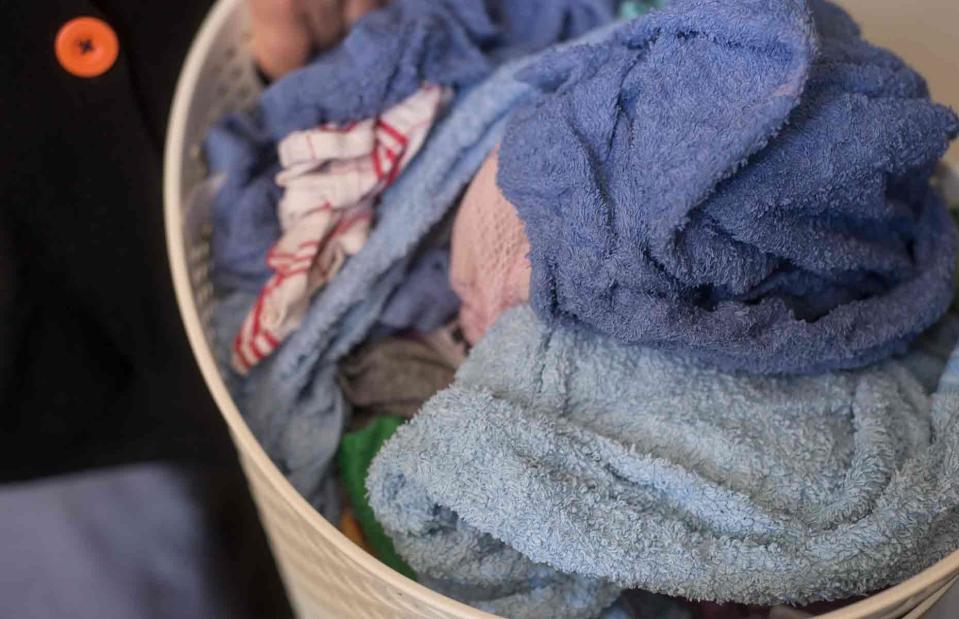
NeydtStock / Shutterstock
After just one day of use, our towels can harbour 17 million counts of bacteria, but very few of us wash them enough. Dirty towels can contain allergens that can trigger allergic reactions or skin irritations, and a 2018 study found that nearly 90% of the bathroom towels examined were contaminated with coliform bacteria, while around 14% contained E coli. The best way to prevent germs from growing on your towels is to establish a regular cleaning routine and ensure they dry completely between each use. The Cleaning Institute also recommends washing bath towels after three uses, so if you shower daily that means sticking them in the washing machine almost twice a week – 60°C (140°F) is the perfect temperature for killing bacteria and viruses.
Charging your phone on your bed
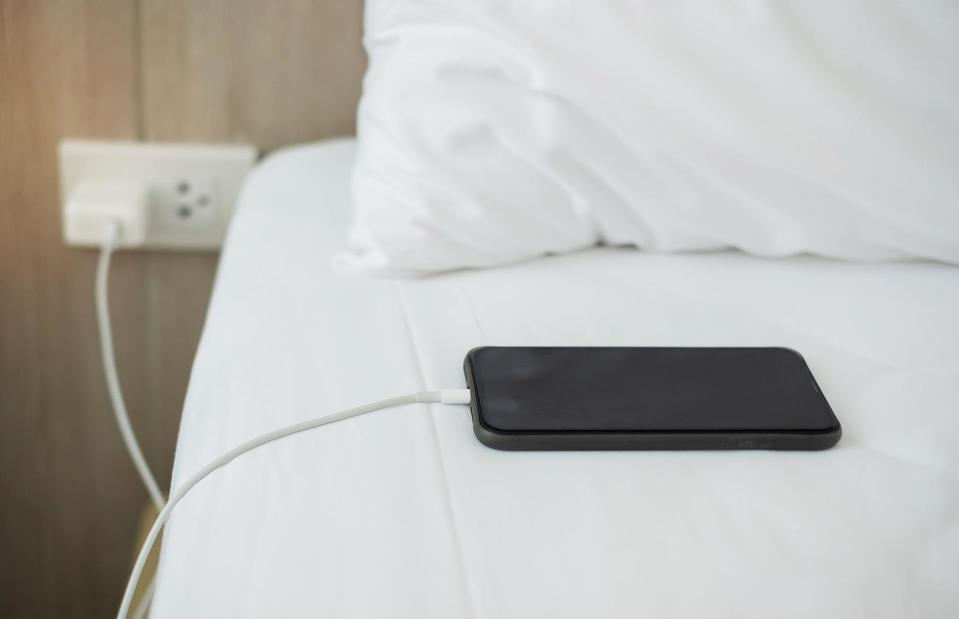
Jo Panuwat D / Shutterstock
Many of us are guilty of charging our phones on our beds, and specifically under our pillows while we sleep. As well as causing you major sleep disruption, charging your device on a flammable surface isn't wise. Your phone lets off heat as it charges and not only will it be unable to stay cool under your pillow, but it could also quickly overheat and in extreme cases, it could even explode. The same goes for laptops and other devices – keep them away from your bed, especially when you're not paying attention.
Overloading power outlets

Octavian Lazar / Shutterstock
While some bad home habits are unhygienic, others are downright dangerous. Many of us have an inadequate amount of power outlets in our homes, which can make it tempting to overload extension cables or wall sockets with too many devices, but doing so is seriously risky. Electrical outlets are only designed to carry a certain power load, so when you overload one the circuit breaker can trip and temporarily cut off your power. In the absence of a circuit breaker, your wiring will overheat and eventually cause a fire.
Not wiping door handles
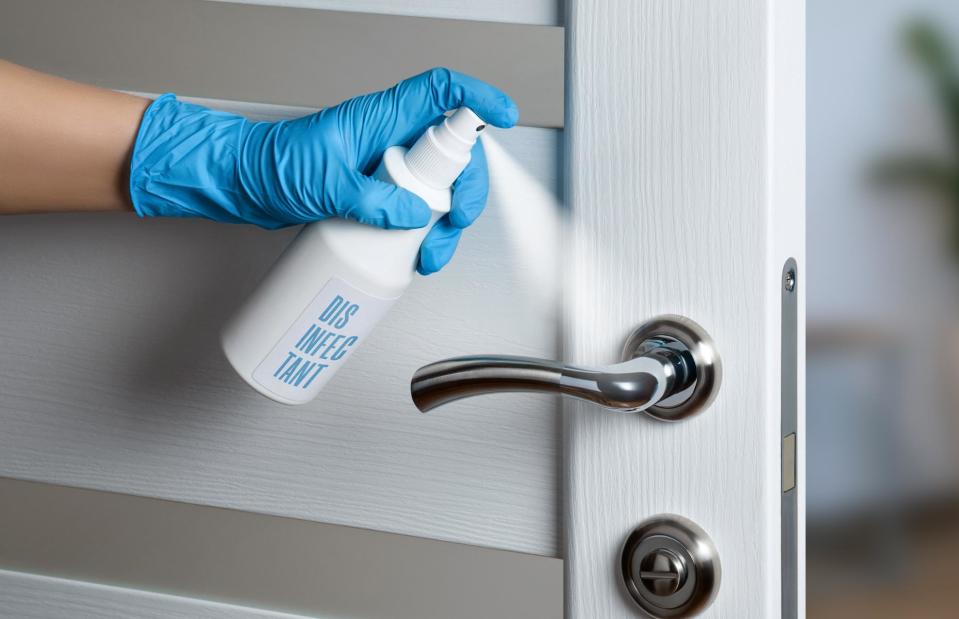
VIKTORIUS-73 / Shutterstock
When we clean our homes, it's all too easy to forget about the door handles. Constantly used throughout the day and touched by every family member, harmful microbes can linger here, transferring from one person to another. Keep germs in check by remembering to disinfect your door handles at the end of every day. To banish viruses, opt for an antibacterial product with an alcohol content of over 60%.
Leaving pet bowls to linger
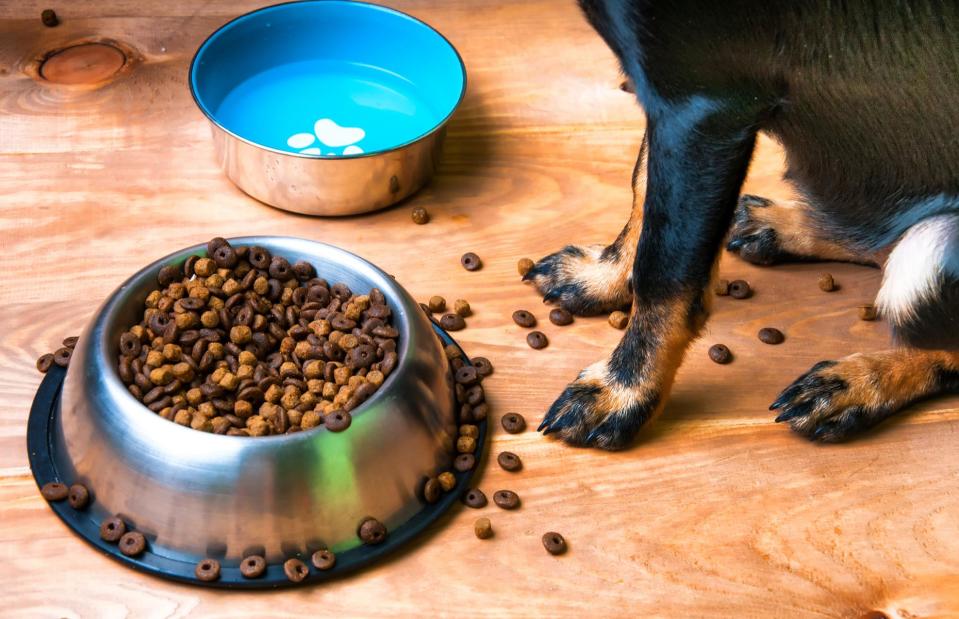
inventbbart / Shutterstock
We love our four-legged friends, but they're not the cleanest of eaters. Left throughout the day, particles of food on their dishes can provide a breeding ground for germs, which can be passed on to your pets. Plus, leftover food and stagnant water will attract common household pests. To keep things sanitary, wash any bowls with soap and hot water each day and soak in a diluted bleach rinse once a week. Water bowls should be refreshed regularly, too.
Forgetting to clean stove knobs
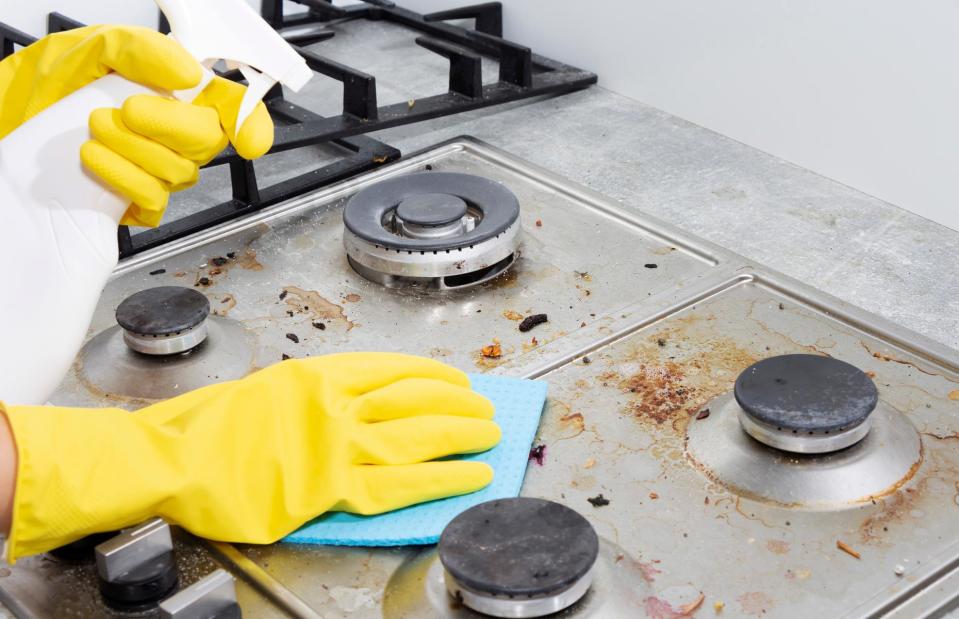
Mikhail Sedov / Shutterstock
While many of us regularly give our hobs a good clean down, one area that's often neglected is the controls. Harbouring hidden germs, the dials are regularly splattered with food and touched frequently while you cook. To give them a thorough clean, remove the knobs and wash them in hot soapy water.
Only using one chopping board for food prep
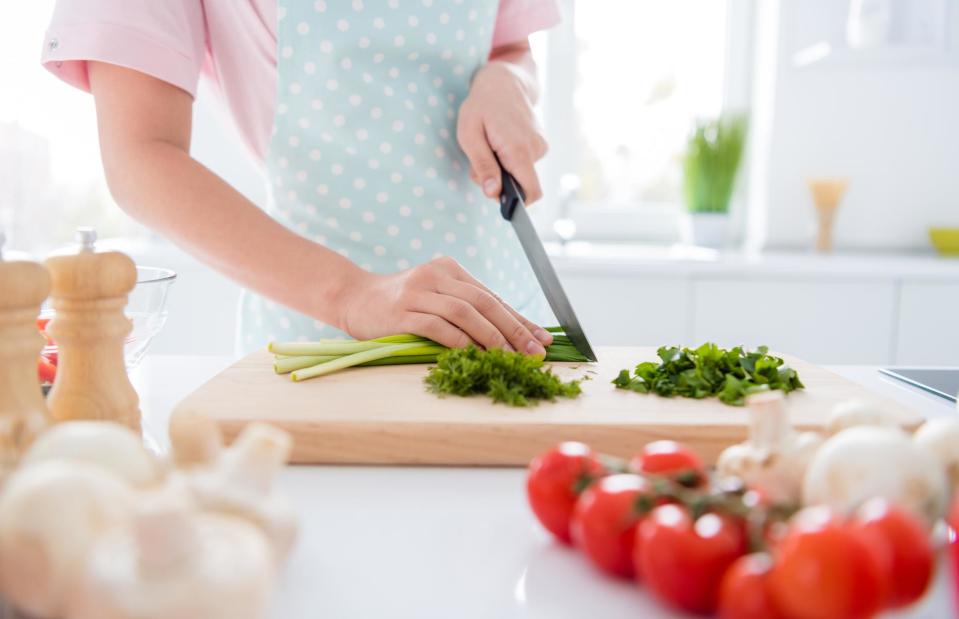
Roman Samborskyi / Shutterstock
Cooking up a wholesome meal often involves handling lots of different produce, from vegetables to fish and meat. If you only use one chopping board, you're at high risk of bacteria spreading from raw products and contaminating the rest of your food. To stop harmful microbes from becoming an uninvited dinner guest, invest in an array of colour-coded non-porous boards for your food prep and clean thoroughly after each use.
Wearing shoes indoors
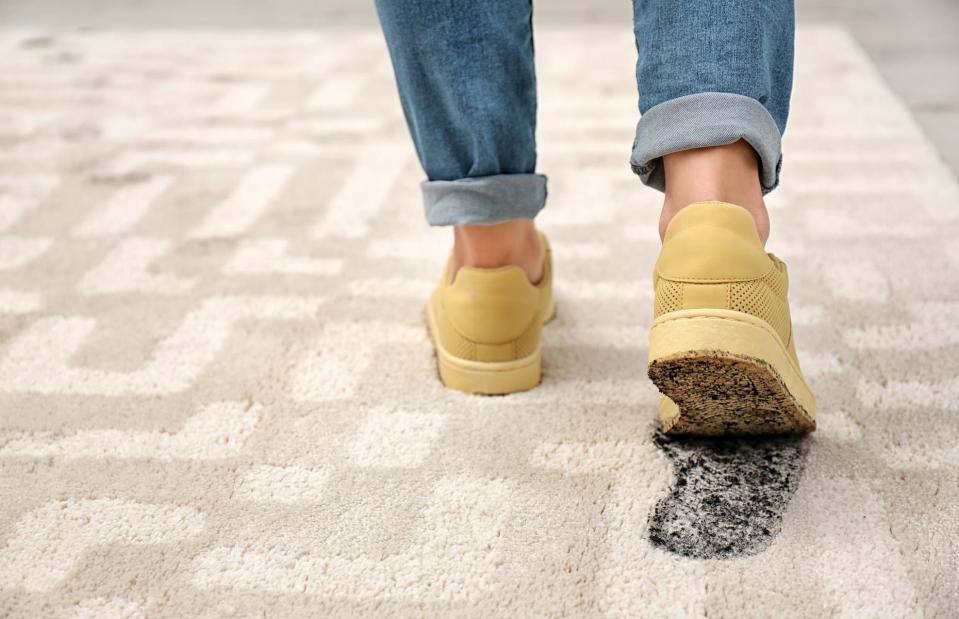
New Africa / Shutterstock
At some point in our lives, we've all heard our parents tell us to take our shoes off at the front door – and with good reason. Even if your shoes aren't visibly dirty, they're teeming with bacteria picked up from the outside world. In fact, a study by the University of Arizona found an average of 421,000 units of bacteria on footwear. Leave germs out in the cold and remove your shoes at the door!
Using a sponge for way too long
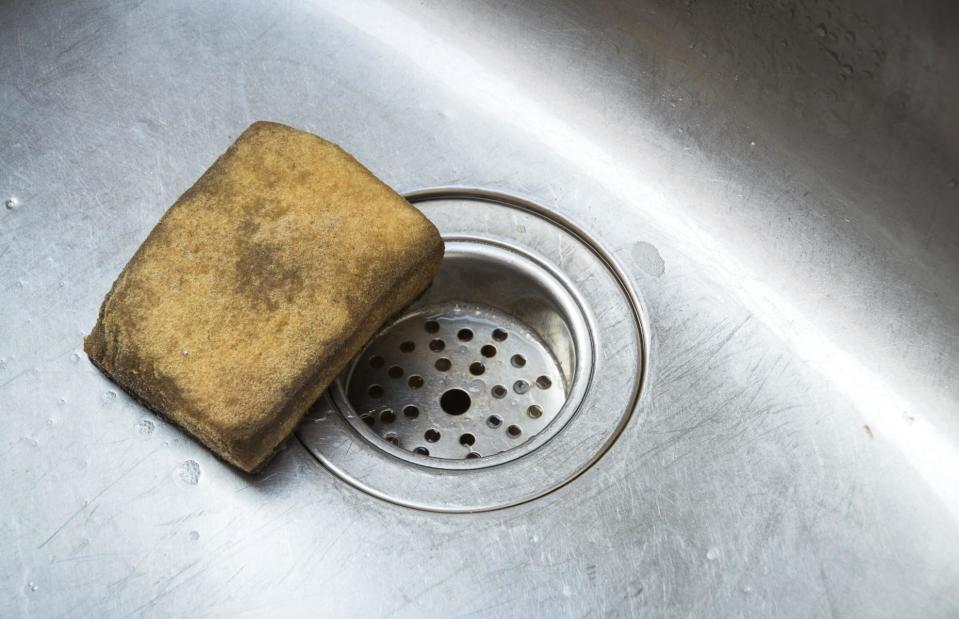
Myibean / Shutterstock
Microbiologists say that the average kitchen sponge hosts more bacteria than any other object in most homes. Ideally, you should be changing your sponge around once a week to minimise build-up. It’s a good idea to bulk-buy sponges in multipacks – it’s cost-effective and means you’ll always have a fresh one to hand.
Using the same cloth for everything

Prostock-studio / Shutterstock
If you're guilty of using the same sponge to clean everything, then stop right now. Just think about what it means to use the same cloth to wipe down your kitchen surfaces and your toilet seat. As well as spreading germs, you could be putting yourself a risk of bacterial or viral infections, including E. coli. Instead, use a designated cloth or sponge for each area (that includes the shower and toilet) and wash your hands between uses.
Not washing bedsheets often enough
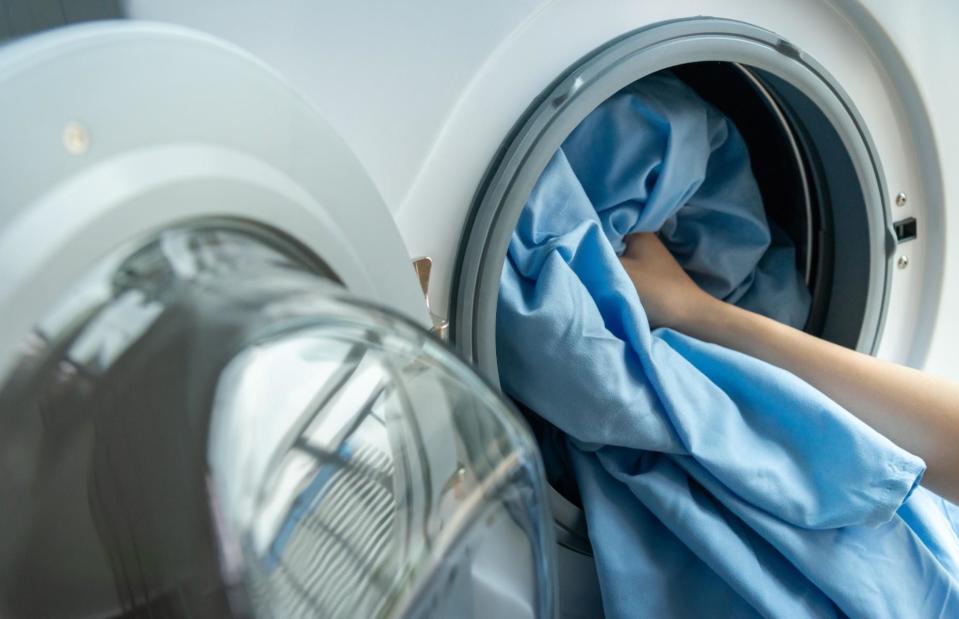
Sara Anne / Shutterstock
Just like towels, the dirt on our bedsheets isn't always as visible as on our clothes but they need to be washed just as frequently. Leave them for too long and germs will inevitably build up. In fact, WebMD, a leading source for timely health and medical news, reports that pillowcases can harbour 17,000 times more bacteria than a toilet seat after just one week of use. Therefore, experts suggest we should be washing our bedsheets weekly at 60°C (140°F), to kill harmful microbes.
Neglecting your dog's toys

David Baileys / Alamy Stock Photo
It’s estimated that between 80 and 90% of dogs over the age of three have some degree of gum disease and they can easily pass that bacteria on to you when you pick up their toys, especially their soft toys. This bacteria includes Peptostreptococcus, Prevotella intermedia and Bacteroides Fragilis – which comes from dogs' intestines!
To combat this, try cleaning soft toys in the washing machine at 60°C (140°F) at least once a week. Ensure they dry properly too, since soft toys are a perfect breeding ground for harmful bacteria. For hard toys, a bit of washing-up liquid and warm water will do the trick.
Relying on bleach too much

nito / Shutterstock
Bleach is a great one-size-fits-all cleaning solution but over-using it can be harmful – it’s corrosive to skin and eyes, and breathing in bleach fumes can damage the lungs. Make sure to use it in the correct quantities, diluting with water according to the product instructions. You can also make your own natural eco-friendly alternatives – add a cup of baking soda to your laundry detergent instead of using bleach to brighten clothes or use white wine vinegar in place of bleach for household cleaning.
Using too much cleaning product

Pormezz / Shutterstock
When you use more spray cleaner, wood polish or laundry detergent than you need to, you’re just adding to a build-up on surfaces that actually means you'll need to clean more often. Follow the instructions on the product packaging carefully – the lids of most bottles of laundry detergent double up as handy measuring cups.
Not cleaning the TV remote
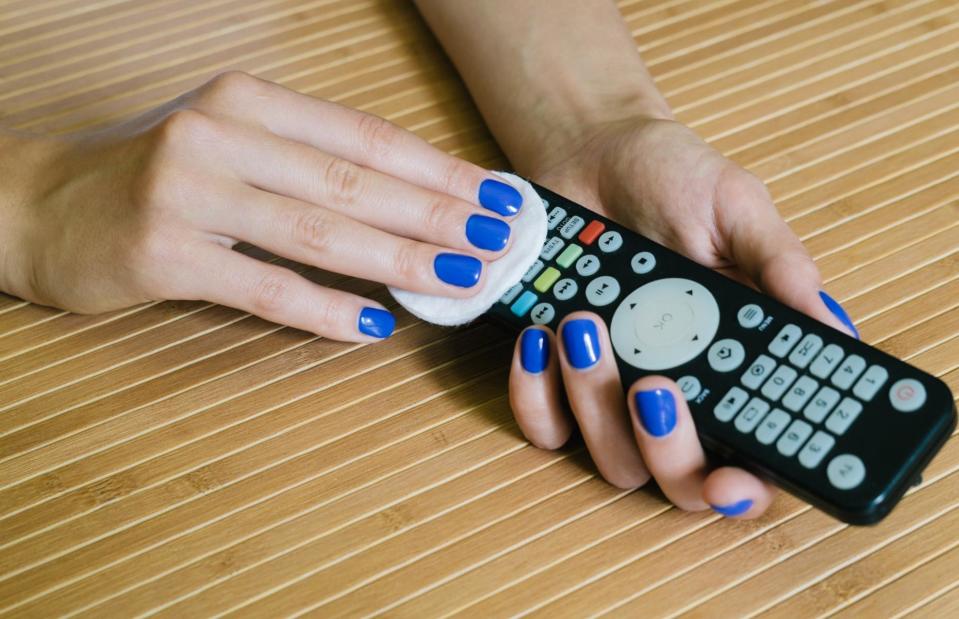
Progressman / Shutterstock
This one is all too easy to forget but when you think about the number of times your TV remote is touched every day, it makes sense to give it a wipe down every week or so. Remove the batteries, then use a cloth and rubbing alcohol to clean all over the remote. If there’s dirt wedged in the gaps around the buttons, use a toothpick to remove it.
Forgetting to clean the lint filter in the dryer

ThamKC / Shutterstock
When lint builds up in the filter, airflow is restricted, meaning your clothes won’t dry as quickly. It can also increase humidity levels, causing mildew and mould to develop around walls – and, as lint is combustible, it can even pose a fire risk. It’s a good idea to get into the habit of cleaning the lint filter after every load of laundry, so that lint never gets a chance to build up.
Neglecting your gutters
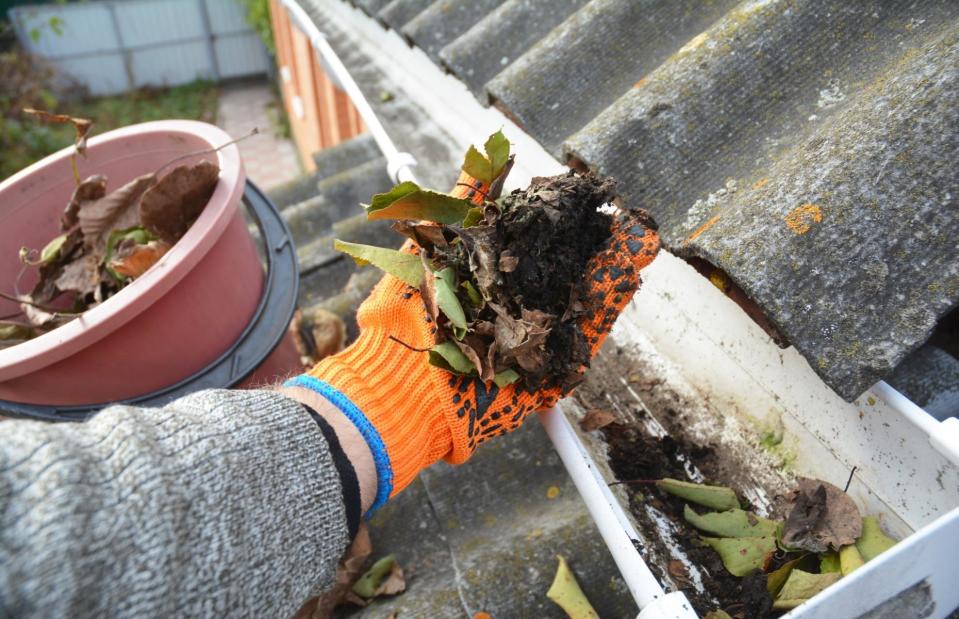
Radovan1 / Shutterstock
Forgetting to clean your roof gutters regularly can lead to water seepage and structural issues, posing a much bigger and more time-consuming problem in the long run. Like many seasonal garden jobs, gutters should be cleaned around twice a year, or up to four times a year if your house is surrounded by a lot of trees.
Using the oven as emergency storage
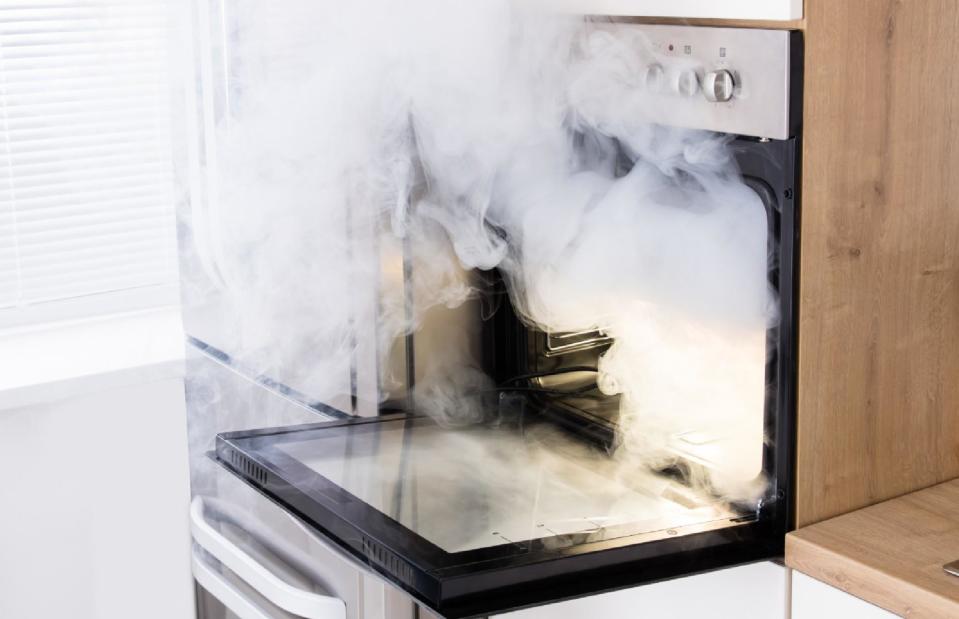
Andrey_Popov / Shutterstock
Your oven should be used for cooking and cooking only. Storing pots and pans, crockery or dry goods in there is a recipe for disaster – if you forget something is inside and switch the oven on, you could very easily start a fire. Plus, using your oven as a storage solution in the long term is likely to put you off cleaning it – or even using it to cook.
Painting over rusty railings
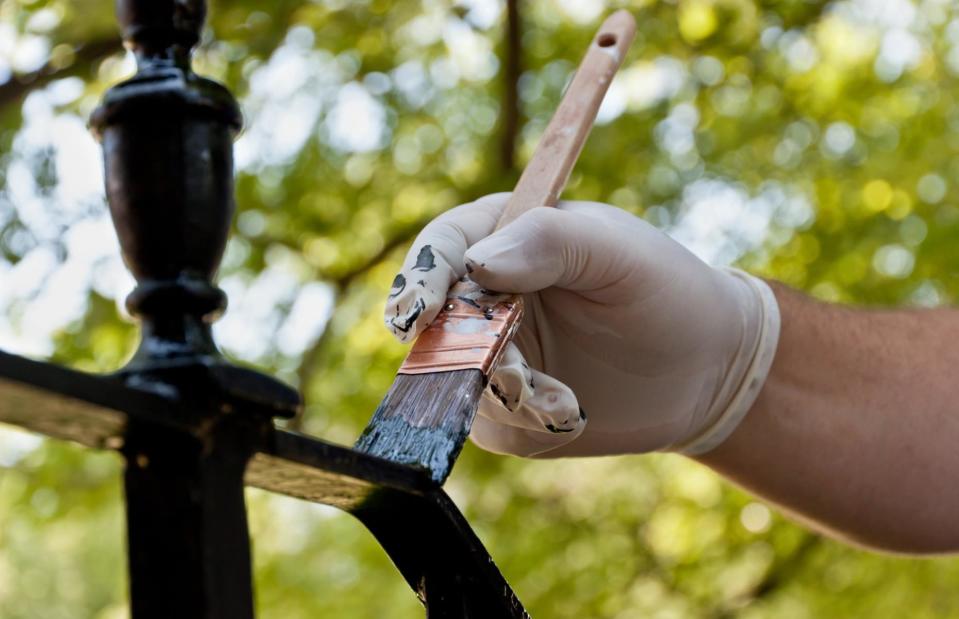
Greg McGill / Shutterstock
If the railings in your garden or balcony are starting to rust, applying a fresh coat of paint directly over them won’t solve the problem. This is because rust prevents new paint from taking hold, so you’ll need to scrape it off and start from scratch.
Allowing mail to pile up

fullempty / Shutterstock
Let’s face it – we all have that table or sideboard where we dump the mail. Over time, though, this can become annoying and look messy, and could even mean you miss important letters. So, set yourself up to declutter your home, and as soon as you get your mail, open it, file away anything important, and throw the rest in the recycling bin.
Leaving wet towels on the floor
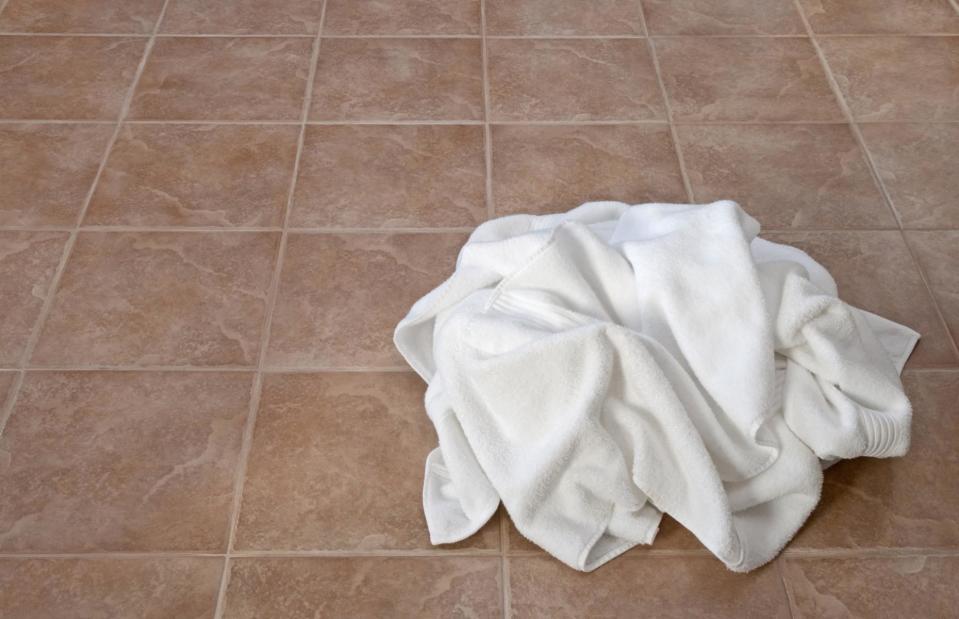
Studio Light and Shade / Shutterstock
As well as ensuring your towels are washed regularly, there are a few things you can do to slow down the spreading of germs and bacteria. Throwing your towel on the floor after a bath or shower prevents it from drying out properly, which will not only lead to bad smells! A damp towel is the perfect environment for mould and mildew to grow. Plus, your bathroom floor may be harbouring hidden dirt that will then be passed to your towel. We're convinced...
Leaving shower curtains bunched up
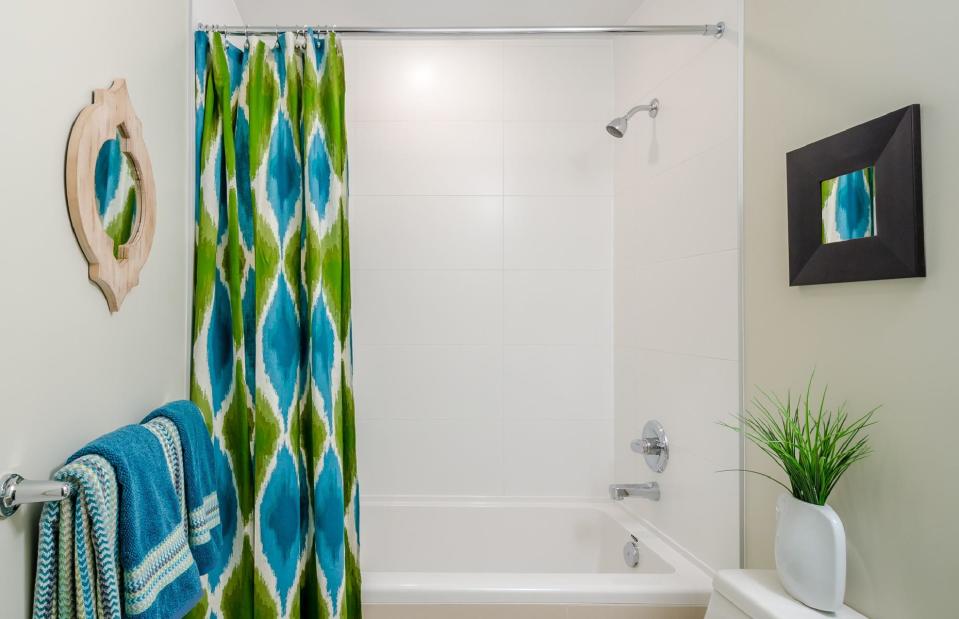
karamysh / Shutterstock
Leaving a wet shower curtain scrunched up at one end of the rail encourages mildew to grow on it – yuck! To prevent this, try and fully close your curtain after each shower, allowing it to dry properly.
Not emptying the vacuum bag or filter
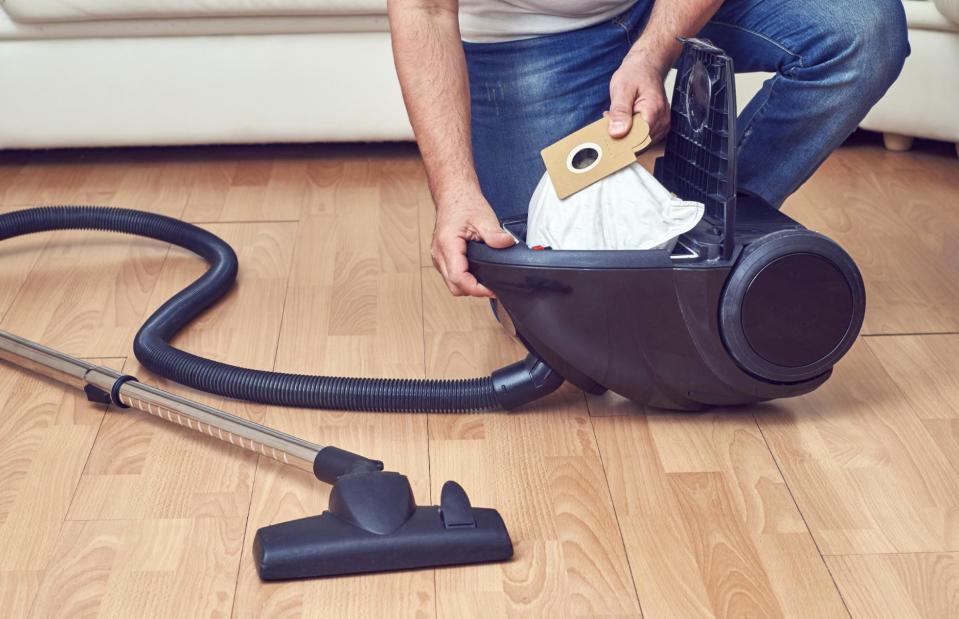
Georgy Dzyura / Shutterstock
Allowing dirt and dust to build up in your vacuum cleaner’s bag or filter can prevent it from working properly, and it can be very frustrating when this happens mid-cleaning session! Most vacuum manufacturers recommend you change your filter around every three to six months.
Using one disinfectant wipe to clean the bathroom
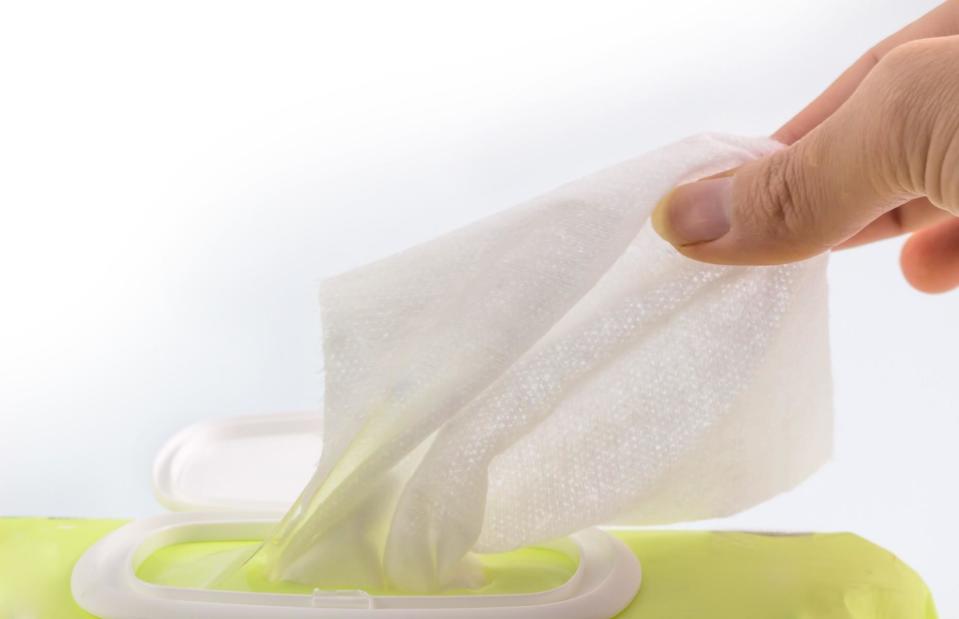
Stella Photography / Shutterstock
One wipe doesn’t contain enough disinfectant to tackle a whole room. You'd have to use a different wipe for each section of your bathroom – one for the basin, one for the toilet, one for the shower and perhaps two for a large bathtub – to have any real effect. Or better yet, ditch the wipes and use a washable cloth and eco-friendly disinfectant.
Leaving the dusting until last
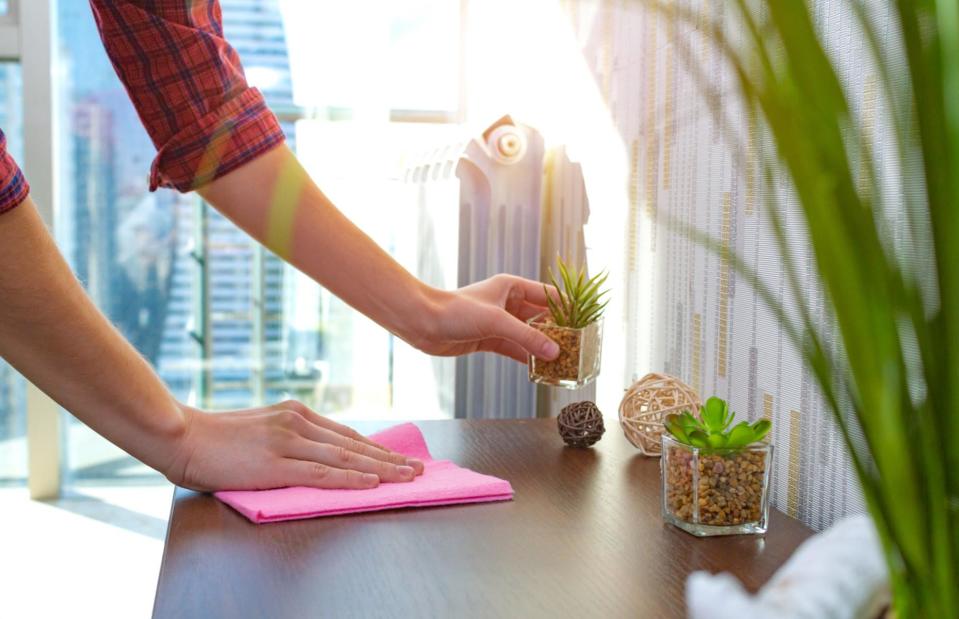
goffkein.pro / Shutterstock
If you vacuum your house before dusting, you’re undoing all your hard work – dusting furniture, shelving and ornaments will cause particles of dust and dirt to fall to the floor, meaning you’ll need to vacuum again.
Using an old non-stick pan
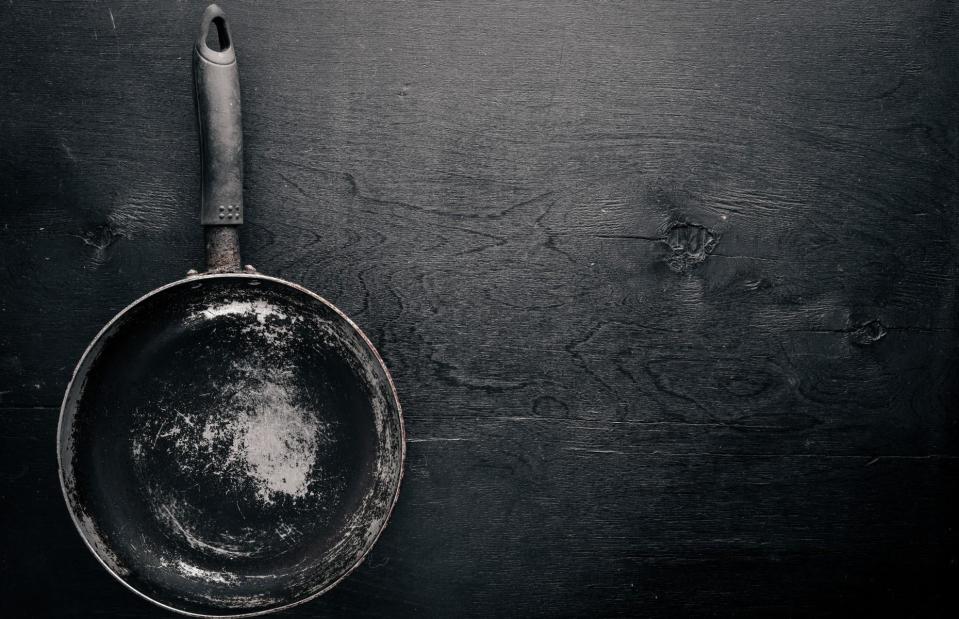
YARUNIV Studio / Shutterstock
Not many people know that over time, the Teflon coating on non-stick pans can break down and end up in your food. To avoid this, it’s a good idea to replace your pots and pans every couple of years, or as soon as their surfaces start to peel off.
Leaving dishes to soak in the sink
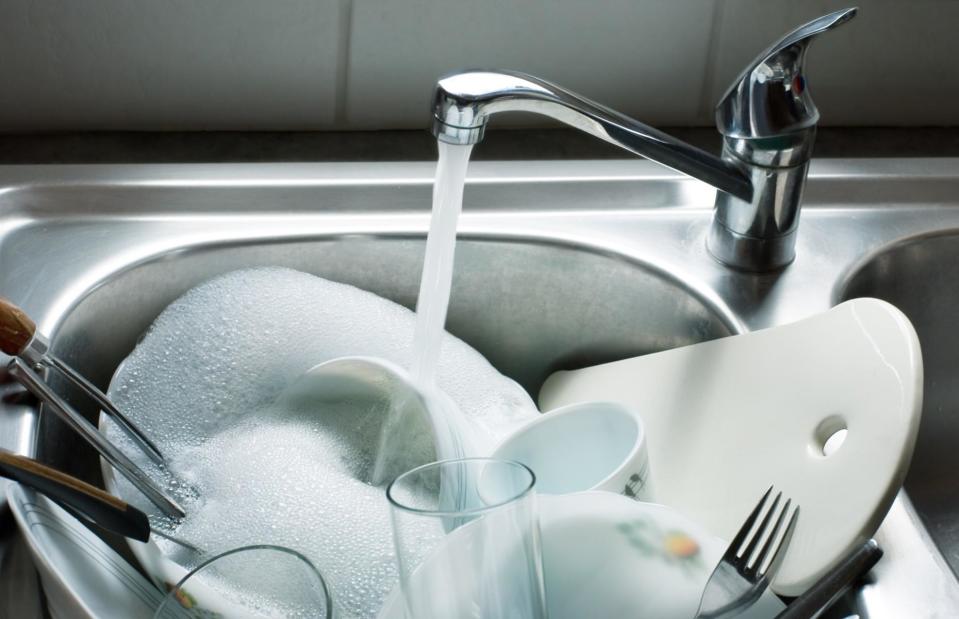
Nika Art / Shutterstock
Bad news for washing-up procrastinators: research from the University of Arizona has found that the average kitchen sink contains more E. coli than a toilet does after it’s been flushed. Leaving dishes in there for too long can allow the bacteria to grow on those, too – and considering you’ll be eating off them, that’s something you’ll definitely want to avoid.
Flushing the toilet with the lid up
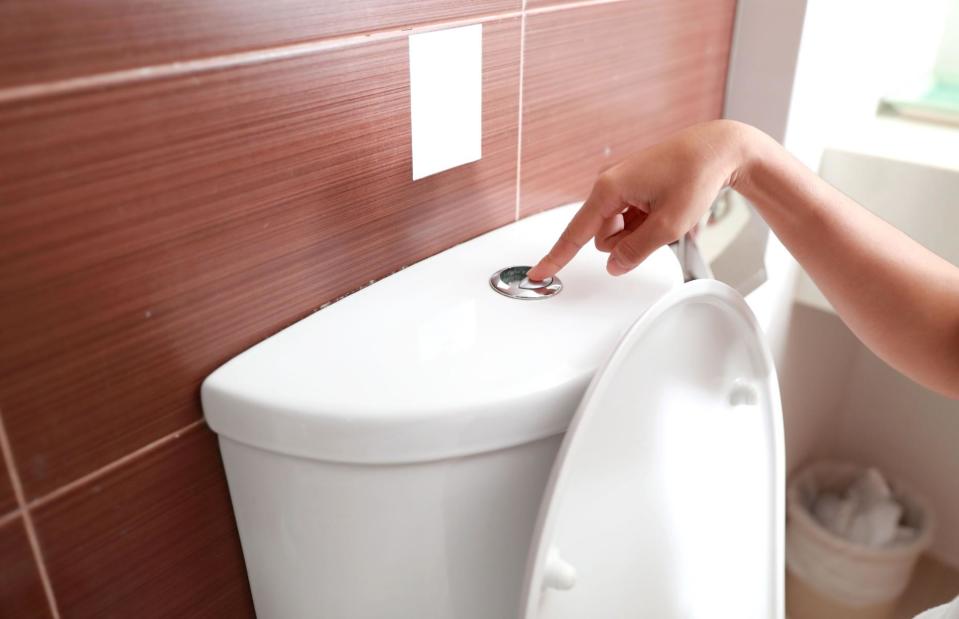
feeling lucky / Shutterstock
Always put the lid of the toilet down before flushing it. If the bowl is left uncovered, the flush can send a super-fine spray of water – and germs – up into the air. Invest in a slow-release toilet seat you can allow to fall closed, to minimise the need to touch the toilet bowl when you close it.
Rinsing food down the sink

Tolikoff Photography / Shutterstock
Washing away excess food down the sink before doing the dishes is an easy habit to get into but these scraps can clog up your drain and cause blockages. Instead, scrape any leftover food into the bin before washing the dishes – it might be more time-consuming, but it’s better than dealing with a blocked sink!
Leaving laptops charging all day

Africa Studio / Shutterstock
When your laptop is plugged into its charger for a long time, both can overheat and potentially become a fire risk. It’s best not to take any chances with this one – when you put your laptop on to charge, set a reminder on your phone to tell you to unplug it after a couple of hours, and never leave it charging overnight or when no one is home.
Not opening windows in the winter

Fevziie / Shutterstock
It’s tempting to keep your windows firmly shut during the cold winter months but your home needs air flowing through it all year round in order to prevent damp problems. Try to open the windows in rooms you aren’t using from time to time, so that condensation doesn’t get a chance to build up, otherwise you'll be faced with trying to get rid of mould and mildew.
Neglecting exterior paintwork

Mary Beth Charles / Shutterstock
If timber on a home’s exterior is exposed, rot can set in over time. As soon as you notice your paintwork starting to peel, sand it down and apply a new coat of good quality weather-proof wood paint, which will protect your home from the elements. Neglecting exterior paintwork is also one problem that could stop someone from buying your home.
Not checking smoke alarms

Alexander Raths / Shutterstock
This is a no-brainer – a smoke alarm could save your life, and it’s no use if it isn’t working properly. Smoke alarms should be tested once a month – simply press the button until the alarm sounds – and their batteries should be replaced once a year.
Running the dishwasher half-empty

Gabi Moisa / Shutterstock
Using the dishwasher for small loads wastes water and electricity, which could cost you money in the long-term, as well as harming the environment. If you can’t wait until there are enough dishes for a full load, it’s best to wash them by hand.
Flushing cleaning wipes

nito / Shutterstock
Sometimes, even so-called ‘flushable’ wipes can clog up drains – and a blocked toilet can be a real pain to get fixed. All cleaning wipes should be disposed of in the bin after you’ve used them or better yet, switch to reusable cloths that you can boil wash and bleach instead.
Leaving laundry in the washing machine

Africa Studio / Shutterstock
It’s easy to put a load of laundry in the washing machine and then forget about it for the rest of the day but the longer it’s left in there, the more chance mould has to build up on your clothes, causing foul smells. Set a reminder on your phone to hang out your laundry as soon as it’s done.
Throwing things in the junk drawer

anela.k / Shutterstock
Let’s face it – we all have that kitchen drawer where we stash all the odds and ends we can’t find a place for. However, this can make things difficult to locate in the long run. Set an afternoon aside to clear out the messy drawer and decide where everything should go – investing in some handy storage solutions such as baskets or over-the-door hanging organisers might help.
Yanking the vacuum cord

sirtravelalot / Shutterstock
Pulling on the cord of your vacuum cleaner too vigorously can damage wiring and wall sockets. Make sure your cord is fully extended before you start cleaning, and move the vacuum around gently to avoid any sudden yanking.
Not protecting your smart home tech

Jeramey Lende / Shutterstock
Of all the smart home breakthroughs we've seen in recent years, Alexa and Siri are have been welcomed more than any other into our personal space. If you use a smart home assistant, it’s important to make sure you update its software regularly and ensure your passwords are complex. Otherwise, you risk hackers being able to access your personal information.
Burning unsafe items

huihyper / Shutterstock
Before burning something in your fireplace, check that it’s safe to do so. For example, coloured paper can increase flame temperature and potentially damage the flue, cause a chimney fire and emit toxic fumes into the air. Other items that are dangerous to burn include plastics, cardboard and wet wood.
Repeatedly resetting a tripped fuse

The Toidi / Shutterstock
If your fuse keeps tripping, resetting it again and again won’t solve things – it’s likely to be a bigger problem. You’ll need to call an electrician, who can identify the cause of the issue and fix it safely.
Taking long, hot showers

goffkein.pro / Shutterstock
It can be hard to step out of a hot shower, especially on cold winter days – but unfortunately, having hot water running in your bathroom for long periods of time creates a moist environment where mildew will thrive. To avoid this, try and limit your showers to 15 minutes at the very most, and always open the window afterwards to let cool air in.
Overdoing the drain cleaner

Dmitry Galaganov / Shutterstock
Drain cleaners contain chemicals that can be harmful to your health if you inhale them, or if they come in contact with your skin and eyes, and some are so caustic they can even erode pipes. As an alternative, pull out the plunger, pour half a cup each of white vinegar and baking soda down the drain, then follow up after an hour with hot water.
Using too much mulch
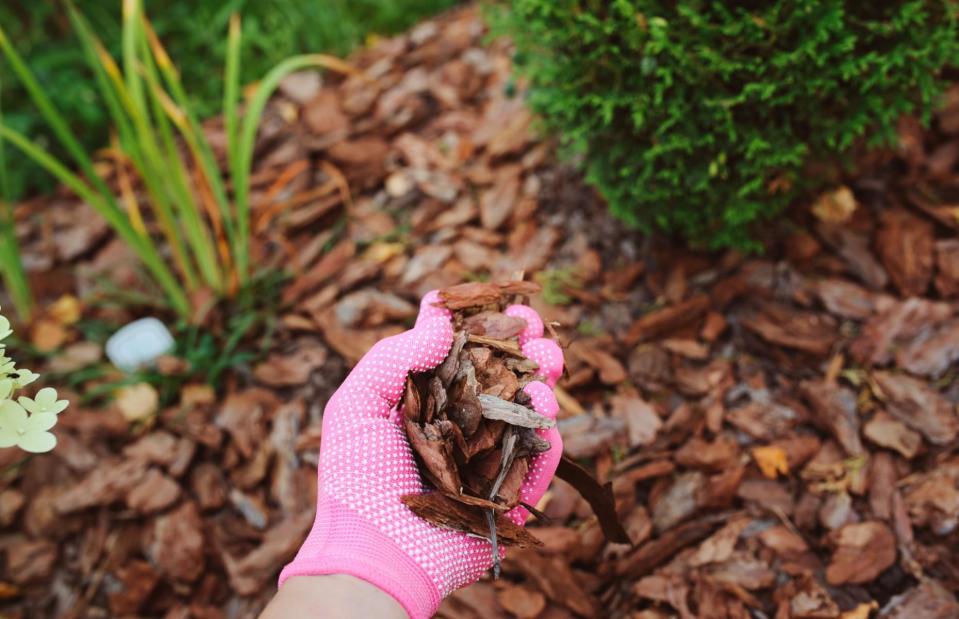
Maria Evseyeva / Shutterstock
When it comes to using mulch in your garden, overdoing it can cause moisture retention, leading to plant disease and decay. A one- to two-inch layer of fine mulch or three to four inches of a coarser material should be sufficient. It might be an age-old gardening hack, but it's one that should be carried out with caution.
Slamming doors

Dmitry Bakulov / Shutterstock
When leaving a room, make sure you close the door gently – no matter how angry you are! Slamming doors can damage hinges, shift jambs and break handles, which can be costly to replace.
Not washing your hands when you get home

Daisy Daisy / Shutterstock
Over the last few years, we've all gained a new understanding of the importance of hygiene, but when you live a fast-paced life it can be easy to forget the basics. Washing your hands as soon as you get home is just one secret to a germ-free home – and better hygiene overall. So, before you head to the kitchen for a snack, wash your hands for at least 20 seconds as soon as you step through the front door.


